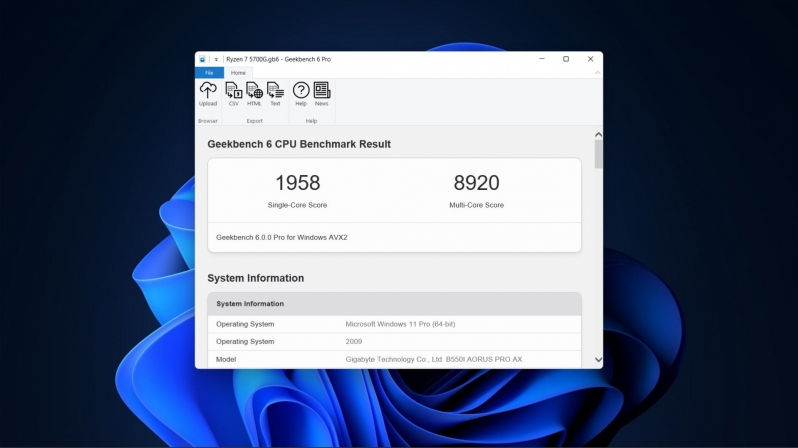Geekbench 6 is now available, offering updated “real-world” tests and new multi-core handling
Geekbench 6 has arrived and offers new “real-world” test scenarios to benchmark modern processors
Geekbench, the cross-platform CPU benchmark has received a new version, updating the tool’s tests to better match the “real-world” use cases of modern users of computational devices. Geekbench 6 is now here, allowing users to compare the performance of Windows, Linux, macOS, Android, and iOS systems.Â
Geekbench 6 has been updated with higher quality and more complex test sets for processors, and feature a new method of multi-core handling that focuses on both core performance and how well cores can co-operate on a shared task. With these changes, core-to-core latencies and other factors will have a larger impact on benchmark scores than before, and systems with stronger hybrid CPU core implementations will see performance benefits.Â
Below is a list of the changes that have been includedin Geekbench 6.Â
  New and Updated Real-World Tests
Geekbench tests have always been grounded in real-world use cases and use modern. With Geekbench 6, we’ve taken this to the next level by updating existing workloads and designing several new workloads, including workloads that:
– Blur backgrounds in video conferencing streams
– Filter and adjust images for social media sites
– Automatically remove unwanted objects from photos
– Detect and tag objects in photos using machine learning models
– Analyse, process, and convert text using scripting languagesModern Data Sets
We also updated the datasets that the workloads process so they better align with the file types and sizes that are common today. This includes:
– Higher-resolution photos in image tests
– Larger maps in navigation tests
– Larger, more complex documents in the PDF and HTML5 Browser tests
– More (and larger) files in the developer testsTrue-to-Life Scaling
The multi-core benchmark tests in Geekbench 6 have also undergone a significant overhaul. Rather than assigning separate tasks to each core, the tests now measure how cores cooperate to complete a shared task. This approach improves the relevance of the multi-core tests and is better suited to measuring heterogeneous core performance. This approach follows the growing trend of incorporating “performance†and “efficient†cores in desktops and laptops (not just smartphones and tablets).
PC users can download Geekbench 6 here.
You can join the discussion on Geekbench 6 on the OC3D Forums.




